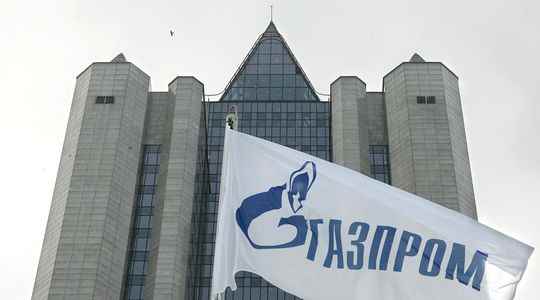Russia is carrying out its threats. Since Wednesday, April 27, Poland and Bulgaria can no longer obtain Russian gas. The Polish gas company PGNiG has confirmed “the complete cessation of the supply of natural gas supplied by Gazprom under the Yamal contract”. The day before, the Russian gas group had indeed warned the Polish and Bulgarian authorities of its intention to interrupt its gas deliveries to these two member countries of NATO and the European Union (EU).
This breach of contract comes on the 63rd day of the Russian invasion of Ukraine as several Western representatives worry about the risk of the conflict spreading outside Ukraine after a series of explosions attributed by kyiv to Moscow in the separatist Moldovan region. from Transnistria. The economic measures taken so far by Western leaders have obviously failed to stop Vladimir Putin in his military enterprise. However, the latter also intends to use the economic weapon to put pressure on Western countries.
- Why is Russia targeting Poland and Bulgaria?
Vladimir Putin had been clear on March 31: all “unfriendly countries” that do not comply with the Kremlin’s demand to pay their bills in rubles from April will see their supply of Russian gas stopped. While Bulgaria was content to denounce this payment measure, Poland has always refused to comply with this threat, the main purpose of which is to support the Russian currency in full tumble in the face of international sanctions introduced since the start of the conflict. The leader of the Kremlin thus directly increases the pressure on the countries of the former Warsaw Pact but also on the European countries qwho have not yet agreed on the sanctions to be carried out on Russian gas.
Since the start of the invasion, launched on February 24, Poland has been particularly virulent towards Russia, calling on other EU countries to toughen sanctions against it. The country, bordering Ukraine, did not hesitate to welcome the hundreds of thousands of Ukrainian refugees fleeing the bombardments. Of the 5.3 million people who left Ukraine, nearly 2,922,978 were in Poland as of April 25. The country is also very involved in the delivery of arms to kyiv and is today a hub for these deliveries. On Tuesday, April 26, Warsaw had also sanctioned nearly 50 Russian oligarchs and companies, including Gazprom, doing business in Poland. The measure, distinct from the sanctions taken in coordination with the other countries of the European Union, consists of a freezing of assets and a ban on entering Polish territory. It is therefore not surprising that the country finds itself in the sights of the Kremlin.
- How dependent are these countries on Russian gas?
According to Eurostat data, the Statistical Office of the European Union, Poland and Bulgaria, like Slovakia, Hungary or even Finland, are mainly supplied with Russian hydrocarbons. The share of Russian gas in non-EU gas imports represents between 75% and 100% for Bulgaria, against 50% to 75% for Poland – only data intervals are communicated so as not to reveal confidential figures, says Eurostat.
The representatives of the two countries, however, affirmed that the breach of contract with Gazprom would not pose a problem for their population, specifying that they had prepared to obtain the missing gas from other sources. “Poland has the necessary gas reserves and supply sources to protect our security – we have been effectively independent from Russia for years. Our warehouses are 76% full. There will be no shortage of gas in Polish homes,” said Polish Climate Minister Anna Moskwa, on Twitter.
Poland had indeed announced in 2019 not to extend its contract with the Russian giant Gazprom beyond 2022. By early 2023, the country will be supplied, among other things, by Norway via Ihe Baltic Pipe undersea gas pipeline project.
- How will the EU react?
European leaders did not wait for the Kremlin to carry out its threats to work on the thorny issue of Russian gas dependence, brought to light by the war in Ukraine. In 2021, the 155 billion cubic meters imported from Russia represented 40% of European gas consumption. However, nothing says that Vladimir Putin will not cut the floodgates of other Western countries if the conflict continues to get bogged down.
The President of the European Commission, Ursula von der Leyen, therefore quickly expressed her indignation at the Kremlin’s pressure: “Gazprom’s announcement is another attempt by Russia to blackmail us with gas. C “is unjustified and unacceptable. And it shows once again the unreliability of Russia as a gas supplier”, she underlined this Wednesday in a statement.
The European leader also specifies that the EU had prepared for such a scenario and that the member states have put in place “contingency plans” for this purpose. “We have endeavored to ensure alternative deliveries and the best possible storage levels across the EU,” she points out.
